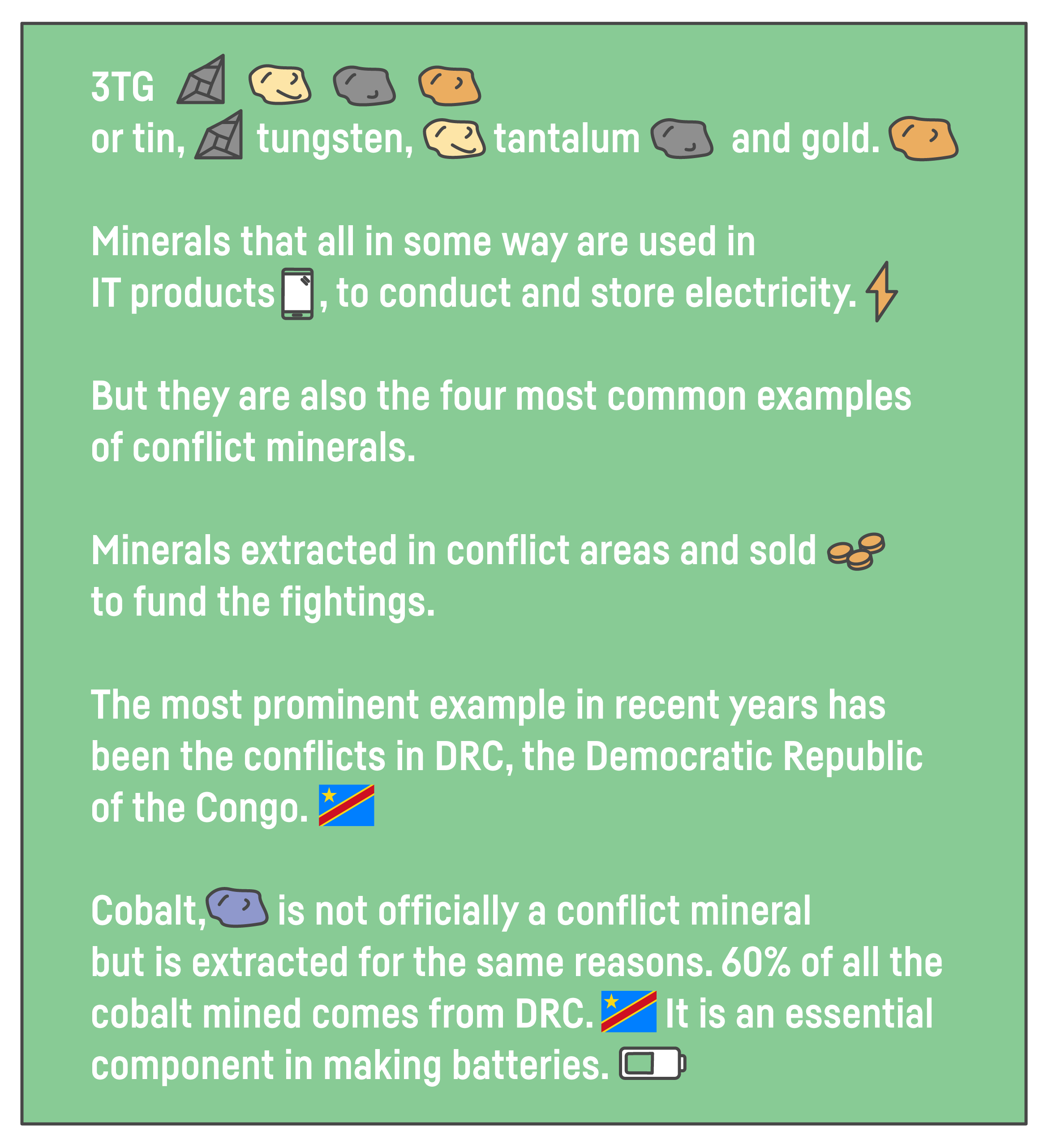Image credit: Jeppe Schilder/Diakonia-PMU
Conflict minerals used in IT products fund wars and drive human rights abuses
Conflict minerals used in IT products are known to fuel wars and human rights abuses. Unsafe mining methods also lead to severe health problems for workers and environmental degradation in the communities where they live.
Nearly 40 percent of today’s domestic conflicts are related to natural resources in one way or another. Minerals such as tin, tantalum, tungsten, gold and cobalt are used in vital components in IT products, and are connected to armed conflicts and human rights abuses in the regions of the world where they are extracted. Forced labor and child labor are common, as are violence, corruption and widespread environmental degradation.
Toxic substances such as mercury are used to excavate the minerals. Workers come in contact with the substances without any protective equipment and soil and water are also polluted as a result. These mostly small-scale, artisanal mines are largely located in remote areas with little infrastructure and where access to healthcare is limited.
Conflict minerals fund warfare
Problems often occur in countries with valuable natural resource deposits, and where there is a weak or non-existing state. To control the profitable mining industry, violent guerilla groups or armed forces occupy an area, abuse workers and use the proceeds of mineral sales to fund further conflicts. The minerals are often traded illegally and to maintain their operations, these groups oppose and undermine any efforts to achieve peace. The development of civil society and a democratic, stable government would bring laws and regulations which may prevent this illegal activity.

What adds to the complexity is that a majority of the mines are artisanal and small scale, which are more difficult to control. While industrial mining employs 7-9 million people on a global scale, more than 100 million people in 80 countries are active in artisanal and small scale mining.
Putting an abrupt stop to illegal trading would therefore lead to a humanitarian crisis, which is why international institutions, legislators and NGOs are trying to find ways to improve the situation for communities that rely on mining activities in conflict-affected areas.
Multi-stakeholder initiatives aimed at responsibility and traceability
Several initiatives are working to bring about safer working practices, eliminate child labor and provide better traceability of the extracted material from mine to smelter and finally to manufacturing and assembly.

